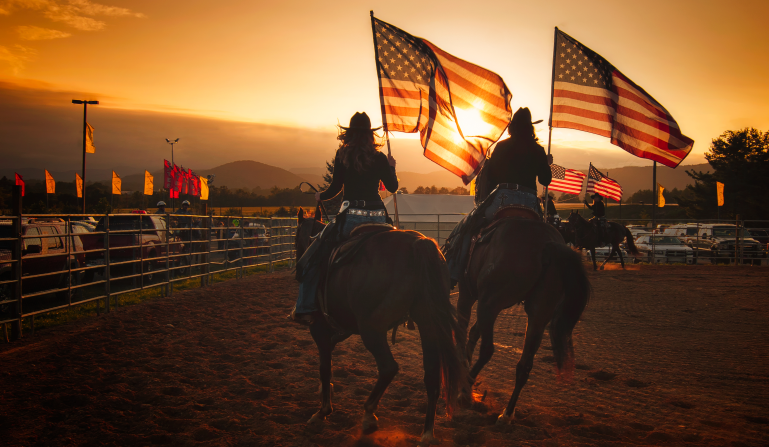Source: Shutterstock
A Cattleman’s Christmas
© 2020 by Peter Coe Verbica
If you were hoping for Neruda, my apologies to you at the onset. I fail at writing about the universe in a lover’s eye or hidden flowers which blossom at the center of one’s soul but allow me to unfold a brown paper bag, crease out its stubborn wrinkles and pencil out something much less impressive — a cattleman’s Christmas. The cattlemen I grew up with would spit into the center of their palms to put out their hand-rolled cigarettes after smoking them down. Our beliefs were simpler, I suppose. Not to overgraze the fields. Horses were for work rather than pleasure. You didn’t make pets out of what you would eat later. We looked past the man and rode for the brand.
In retrospect, we had our sins. Pouring poisoned grain down squirrel holes to cut down on cattle breaking their legs. Not thinking of the raptors. Our equations were shorter. Deer meat was dug out of the back of the freezer during the difficult times. No matter how slow you cooked it, somehow it always ended up tough and gamey. The heat was tolerable, even in the summer when the creeks ran deep below the round river rock beds and the windmills pulled up groundwater intermittently. If you were bucked off a horse, which was rare, you got back on. Weeping was for the weak and the candy-assed.
Now, the bold wrote about sunshine patriots and times which try men’s souls, and these days are in an odd parallax to those as grown men are told to shutter at home in pajamas rather than take to the open range. I am at a loss, though I know that this too shall pass. I guess whatever rage I should feel at this situation has been dumbed out of me, the way rust works its way into barbed wire over time. The way the sun bleaches the blood out of strewn bones. Even the high-country trail ride I had been scheduled for was cancelled, the first time in its history. The trademark silver buckles with their three gold crosses were left in closets. I never mustered up the money to buy one, probably because ranger buckles were less showy, but to tell the truth, they were also cheaper.
What to do with so much dead time. After you’ve rubbed gristle into saddle and bridle leather to keep it from getting brittle and swept the frayed Persian rugs free of hay on the cement walkways in the barn. After you’ve replaced the old fly tapes with new ones you pull out from their cardboard canisters. After you’ve filled the bathtub with rolled grain fresh with the smell of molasses, dropped down the framed cover and laid the gunny sack onto a pile. After you’ve checked the cinches and decided they’ll last for a couple more seasons. After you’ve let the sweat in the horsehair blankets bake off in the sun and slid them back onto their racks. After you’ve hosed down the dirt to keep the livestock from kicking up the dust. After you’ve disced firebreaks around the barns and tamped down the dirt around the creosote-soaked gateposts. After you’ve mucked the stalls and fed the barn cats and Queensland heeler.
Some say that they’ve drawn the cowboy out of Christmas, taken most of the marrow out of the holiday’s hallowed bones. I’m not going to preach to you that it’s wrong or right; I suppose it’s something that just is. The old cattle trails are fallow and cutting pens left to rot as faceless foundations grab more of the land. Pipes warned that well-intentioned utopians would roll utilitarian heads, that in forcing us to raise our eyes towards their perception of heaven, we would lose the very ground beneath us. The new breed lost something along the way, I would say. Perhaps it’s time to bring back the gauchos, the vaqueros, the cattlemen. Perhaps it’s time to let people rather than the unaccountable own the earth.
This isn’t meant to be an eccentric’s manifesto. I’ll hand you a bag of nails, a hammer and a handsaw, and do my best to explain myself. A hike years ago had a purpose; it meant angling your roping boots, so as not to slip on a hillside if you were carrying a shovel and redwood to work on a spring box. My favorite spring was down one steep hill a ways, hidden under the immense shadow of a big Bay, her leaves rich in spice and scent. You’d pull off the wooden top to work on it, like opening up a treasure. And the water was clearer then, somehow alive in the speckled light, with the whole hill whispering into it. Subconsciously, you knew that you were up to something precious. That the cold water in contrast to the dry summer heat was life. Before meat was grown in labs and what you did mattered and fed families.
To the men and women I was raised with, I’ll propose a Christmas toast, to those who bought their young sons lever-action Winchesters, stockman pocket knives and flannel rather than cardigans. To the men who sat with me at a long table at a ranch house which has long since been torn down. To those I think of as not just cowboys, but something a little more regal, to the broad-shouldered and big-hearted, who opened doors for ladies and tipped their straw hats while winking at them. A raised glass to the old guard, both then and now, to those I like to think of not just as cowboys, but as cattlemen.
“Bless those who lifted bales
and threw them onto trucks
Bless those who rode the trails
and never trusted city …”

